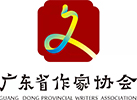
标题

标题
内容
首页 > 自定义类别 > 海上丝绸之路文学发展论坛 > 发言
期待新广东文学更加绚丽多姿
更新时间:2018-11-11 作者:梁鸿鹰 (中国)来源:广东作家网
广东作为岭南文化的发源地、海上丝绸之路的发祥地,南越文化、中原文化和海外文化在这里交融碰撞, 中西文明结合, 传统与现代相融, 对新事物更包容、体验更多元,横空出世的康有为、梁启超、孙中山、黄遵宪等文化领袖曾经巍然耸立,影响深远,当代则有欧阳山、秦牧、陈残云等文学大家为中国文学留下不少经典之作。改革开放推动着南粤大地不断涌现具有时代新内涵的社会人文风情、生活方式、价值观念,“新客家”、“新移民”,催生着新广东的新风貌,都市文学、打工文学,新移民写作、本土写作不断展现着焕发着生机,不断为中国文学提供着新的元素。
从原始到现代,从蒙昧到开放,整个民族前进的脉络在广东均有迹可循,留下了大量可供表现的素材,广东作家群积极顺应历史发展的潮流和时代的要求,在推动社会前进中推动文化发展文学繁荣,为我们推出许多作用巨大、传播持久的精神成果。发扬这种优良传统,挺立潮头,锐意进取,我们深信,在不久的将来,广东的作家肯定会贡献出更多无愧于大时代的力作。譬如说,如果从历史这个角度深入挖掘的话,无论是古代历史人物、近现代先行者,还是民主革命奋斗者,他们的业绩都是讲好广东历史故事的极好素材;如果从文化方面来讲,广东作家面对的是丰富的文化厚赠,粤商文化、广府潮汕客家等民系文化,发达的海洋文化,足可令创作者惊叹流连;而从商业实业方面讲,讲述好“海上丝绸之路”的故事,广东作家更有得天独厚的条件,广东近现代发达的工商业、遍布于世界各地的华侨,早已是当代广东作家的富矿;而从当下的资源方面讲,广东作为改革开放的排头兵、先行地、实验区,多种经济齐头并进,涌现出许多改革先锋,开放范例,成长了不少新粤商,同时,打工者建设广东的刻骨铭心故事,更值得继续大书特书。
可以说,广东身处中国五千年未有之大变局中的最前端,风云壮阔的新时代为作家提供了丰富素材和艺术灵感,也提出了更高要求。为此,当深入理解中国人的生活,亲近和了解自己的人民,努力做到“民之所忧,我之所思;民之所思,我之所行。”坚定自己的文化自信,对自身所禀赋和拥有的文化价值给予充分肯定积极践行,对自身文化生命力创造力持有坚定的信念信心,从一个方面讲,就是要不忘初心,不忘回到传统,相信回到传统会找出一些办法,走出一些好路子。中国人的现实,中国人的传统,任何时候都是写作时的重要依傍,丢失掉了,会有失魂落魄的危险。
坚定文化自信离不开向世界最先进的方面注目,在多种文明互鉴中发展自我。要强调全面的学习,包括对东方文化、俄罗斯、印度、中亚、西亚、非洲等的学习,而不单纯是向欧美发达国家和拉美学习。当代文学创作当然不能忘记“现代性”,时代在迅猛发展,在信息化全球化条件下,构建人类命运共同体的时代,意识太落后,文学观太落后,写出来的作品肯定不行。中国举世瞩目的进步,中国人精神的迅速成长,同样需要我们去触摸、挖掘和表达。表现中国当代生活的现代性,以及面向世界的写作,应该向世界展示中国人的认识能力、思想能力、想象能力,展示中国人对人类命运共同体的想象,把那些无论意识上的还是实践中的,我们能够贡献于世界的对人类命运的思考,都通过文学传达给世界。
美国作家海明威说过,“对于一个真正的作家而言,每一本书都应该成为他继续探索那些尚未到达的领域的一个新起点,他应该永远尝试去做那些从来没有人做过或者他人没有做成的事。这样他就有幸获得成功”。要发扬广东人“敢为天下先”的精神,保持对新生活的敏感触觉,深切关注当前社会变化,忠于自己的本性、自己的才华、自己的想象,突出地方特色和个性特点,不依赖于生活素材本身的鲜活、地域特色本身的鲜明,拓展思想境界与艺术功力,表现人性幽微,展现社会纵深,以高远的眼光,宏观的思考与深长的社会洞察力超越自我,超越题材,实现新的突破,把握由“软介质文学时代”进入“虚介质文学时代”的特点,彰显中国气派、广东特色、南粤风韵。
Expectations On New Guangdong Literature
Liang Hongying(China)
Guangdong is the birthplace of Lingnan Culture and the Maritime Silk Road. The blending and collision of South Vietnamese culture, Central Plains culture and overseas culture gives Guangdong an inclusive attitude toward new things and a more diverse environment where the East meets the West and the traditional combines with the modern. The Cultural leaders like Kang Youwei, Liang Qichao, Sun Yat-sen and Huang Zunxian left an important mark on China’s history. Recently we have writers like Ouyang Shan, Qin Mu and Chen Canyun with many classics for Chinese literature. The reform and opening up encouraged social and cultural customs, lifestyles and values with new characteristics of the times in Southern Guangdong. The “new Hakka” and “new immigrants” render new images of Guangdong. Urban literature, migrant laborer’s literature, new migrant writing and local writing continue to show its vitality and provide new elements for Chinese literature.
From primitive times to modern times, from the age of barbarism to the age of opening up, the nation has left in Guangdong its traces of development, which can be used as writing materials. Guangdong writers follow the lead of history and times, promote the development of literature as well as social progress and bring us many influential and long-lasting spiritual achievements. We should carry forward this tradition and forge ahead. We believe that in the near future, Guangdong writers will present us with more valuable works. For example, if they study history in depth, they can write about ancient figures, modern forerunners and democratic revolutionists to tell the history of Guangdong. If they write about culture, they will be marveled at the rich cultural bequest, including folk culture of Cantonese merchants or Chaoshan Hakka and developed oceanic culture. If they write about commerce and the Maritime Silk Road, their advantages will be based on developed industries and commerce in Guangdong and its overseas Chinese all over the world. If they write about recent development, they can write about Guangdong’s pioneering role in the reform and opening-up, or its innovations like the new market system. Of course, the unforgettable story of migrant workers who contributed a lot in Guangdong’s construction is also worthwhile to tell.
It is fair to say Guangdong is at the forefront of this unprecedented reform. It is such era that provides rich materials and inspirations to writers as well as higher demands. Therefore, we should have a deep understanding of Chinese people’s lives and strive to provide better services to people and ease their worries. We should be confident of our culture, value and culture’s vitality and creativity. One way to do this is to go back to traditions and learn lessons. Without Chinese reality and tradition in mind, writers could lose souls.
To strengthen cultural self-confidence, we should also learn from other advanced cultures and develop ourselves in mutual exchanges. In stead of learning from Europe, America and Latin-America, we should learn comprehensively and learn from oriental cultures, Russia, India, Central Asia and Africa. Contemporary writing should maintain “modernity” as the world is developing very fast. Backward literature will fail when the world is globalized and becomes a human community of shared future. We should find ways to record China’s eye-catching development and Chinese people’s rapid spiritual growth. Our writings should express such “modernity” and depict Chinese people’s cognitive, thinking and creative abilities to the world. We should convey to the world Chinese people’s vision about the human community with a shared future and thoughts on mankind’s future through literature.
Earnest Hemingway once said, “For a true writer, each book should be a new beginning where he tries again for something that is beyond attainment. He should always try for something that has never been done or that others have tried and failed. Then sometimes, with good luck, he will succeed.” We must carry forward the pioneering spirit of Guangdong people, stay sensitive to life and pay close attention to current social changes. We should stay true to our own nature, talents and imagination, strengthen our personal styles and local characteristics but not confined in them; instead we should try to expand our horizon and improve our capabilities, so to capture the subtlety of human nature and the depth of society. We should transcend ourselves and genres with long-term vision and a big picture in mind as well as insight. Now we are shifting from “soft media literature era” to “virtual media literature era”, and we must understand its characteristics to make new breakthroughs and highlight the charm of Guangdong and China.